| Reviews & Columns |
|
Reviews DVD TV on DVD Blu-ray 4K UHD International DVDs In Theaters Reviews by Studio Video Games Features Collector Series DVDs Easter Egg Database Interviews DVD Talk Radio Feature Articles Columns Anime Talk DVD Savant Horror DVDs The M.O.D. Squad Art House HD Talk Silent DVD
|
DVD Talk Forum |
|
|
| Resources |
|
DVD Price Search Customer Service #'s RCE Info Links |
|
Columns
|
|
|
Twilight Zone - Season 1 (The Definitive Edition), The
INTRODUCTION:
"There is a fifth dimension beyond that which is known to man. It is a dimension as vast as space and as timeless as infinity. It is the middle ground between light and shadow, between science and superstition, and it lies between the pit of man's fears and the summit of his knowledge. This is the dimension of imagination. It is an area which we call the Twilight Zone."
One of the most popular anthology series of all time, The Twilight Zone was never a huge ratings success (falling short of Nielsen's Top 30 in each season), but it had a loyal audience and critical support and remained on the air for five strong years. Evolving predominantly from the imagination of Rod Serling, an incredibly successful dramatic television writer in the preceding years, The Twilight Zone mixed science fiction, suspense, and fantasy into stand-alone tales that challenged the audience to think about the nature of our humanity. The show's first season featured some of the series' best efforts -- including "The Monsters are Due on Maple Street" and "Time Enough at Last" -- and it is presented here in a "definitive" six-disc set that should hopefully be the last time (on DVD) Image Entertainment asks us to dip into our wallets for this wonderful series.

CONTENT:
Along with the variety show, anthologies were a staple of 1950s television. Radio shows like Cavalcade of America (later renamed the DuPont Theater) and The Theatre Guild on the Air (renamed The U.S. Steel Hour) were brought to television, and numerous other sponsor-driven anthologies like Kraft Television Theatre, Schlitz Playhouse of Stars, and the much beloved Playhouse 90 were saturating the primetime airwaves. Pulling from previously written radio and stage material as well as newly developed scripts, these shows were often presented live and featured some very talented writers, directors, and stars. However, with the exception of Alfred Hitchcock Presents, few of these shows aimed for anything more than standard dramatic presentations, so when Rod Serling's The Twlight Zone finally made it to air, it was a welcome departure from the norm.
Serling was a very successful television writer, winning three consecutive Emmys for his work on Kraft Television Theatre and Playhouse 90, but he had become increasingly frustrated with the seemingly trivial meddling from the sponsors and an inability to present truly compelling social commentary without offending their narrow sensibilities. Already interested in more imaginative concepts, he realized by setting his tales in a futuristic or fantasy setting, he could get away with a lot more and tell stories with greater meaning. As the decade neared conclusion, and the live anthology shows were quickly being replaced by hugely successful Westerns, Serling found the time and opportunity to sink most of his energy into developing a series that would be a creative outlet for all his ideas. After getting his first script for "The Time Element" on the Desilu Playhouse and having his second treatment for "The Happy Place" rejected by executive William Self, "Where is Everybody?" was finally accepted as a pilot for CBS, and it premiered at 10:00pm on Friday, October 2nd, 1959.
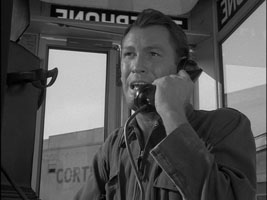 "Where is Everybody?" went through a few key revisions, most notably the opening titles and narration, and the final product showcases nearly every element of what makes The Twilight Zone such a compelling and enduring series. Earl Holliman portrays a common man who finds himself in a most uncommon situation, alone in a town completely devoid of people, and yet everywhere he goes, it's as if someone was just there before he arrived (playing jukebox, smoking cigar, etc). What begins a peculiar situation slowly descends into madness, and the acting, direction, and musical score all facilitate this descent, making it very accessible for the viewer. It's a very well crafted piece of television that succeeds even now, and in typical Twilight Zone fashion, the episode's resolution is both surprising and perceptive. While "Where is Everybody?" is one of only a few episodes that requires virtually no suspension of disbelief, it is representative of what the show would ultimately become and is an excellent introduction to the series.
"Where is Everybody?" went through a few key revisions, most notably the opening titles and narration, and the final product showcases nearly every element of what makes The Twilight Zone such a compelling and enduring series. Earl Holliman portrays a common man who finds himself in a most uncommon situation, alone in a town completely devoid of people, and yet everywhere he goes, it's as if someone was just there before he arrived (playing jukebox, smoking cigar, etc). What begins a peculiar situation slowly descends into madness, and the acting, direction, and musical score all facilitate this descent, making it very accessible for the viewer. It's a very well crafted piece of television that succeeds even now, and in typical Twilight Zone fashion, the episode's resolution is both surprising and perceptive. While "Where is Everybody?" is one of only a few episodes that requires virtually no suspension of disbelief, it is representative of what the show would ultimately become and is an excellent introduction to the series.
Setting the tone for the pilot episode and each subsequent one that follows is an introduction from Mr. Serling himself, and these narrations would become the trademark of the show. The staccato of his voice coupled with his hauntingly poetic manner of speech create a unique style and tone for the series, and it's hard to imagine the show surviving without this incredible voice-over work during each episode. With a somewhat mangled face and a penchant for talking through the side of his mouth, Serling is also an incredibly distinctive figure on the screen; however, except for his previews of upcoming episodes, he only appears in one episode of this first season, the season finale. In later seasons, he would appear quite often as an on-screen narrator.
Also unique to this first season is the opening title sequence. Unlike the more in-your-face approach to later seasons that used the now highly recognizable theme that was spliced together by Lud Gluskin from Marius Constant's work, this first season features a much more subdued approach with titles that suggest a descent through the clouds and an arrival at the entrance of a cave. Beautifully scored by master composer Bernard Herrmann, this opening sequence is quite different from the one modern syndication audiences are most familiar with, but it is equally effective and in some ways superior.
In total, there are 36 half-hour episodes in the first season of The Twilight Zone, and most of them either come from Serling himself or were stories that he purchased and rewrote for television (often significantly changing the plot). The remaining episodes were written by Charles Beaumont (4) and Richard Matheson (3), major contributors to the show, as well as a bit of a stinker from Robert Presnell, Jr. While each episode is unique in its story and approach, and some are much better than others, there are some constant themes than run throughout this season. Similar to "Where is Everybody?", "The Lonely" focuses on isolation and our inherent need for human companionship and how we will go mad without it. Jack Warden gives an excellent performance as a man sentenced to prison on an asteroid who desires nothing more than someone with whom he can share his desolate isolation, even if that someone isn't real.
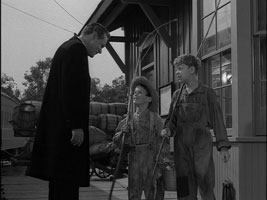 Two other episodes, "Walking Distance" and "A Stop at Willoughby", both feature stories with characters who are run-down from the pressures of work and who long for a more peaceful and tranquil time of the past. In the former, Martin Sloan (Gig Young) finds his peace in the hometown of his youth, and the episode features a very poignant concluding dialogue between him and his father of the past. The latter features a man even futher beaten down by the pressures of life than Sloan, and he finds his salvation in the serene and fictitious town of Willoughby, "where a man can slow down to a walk ... and live his life full measure."
Two other episodes, "Walking Distance" and "A Stop at Willoughby", both feature stories with characters who are run-down from the pressures of work and who long for a more peaceful and tranquil time of the past. In the former, Martin Sloan (Gig Young) finds his peace in the hometown of his youth, and the episode features a very poignant concluding dialogue between him and his father of the past. The latter features a man even futher beaten down by the pressures of life than Sloan, and he finds his salvation in the serene and fictitious town of Willoughby, "where a man can slow down to a walk ... and live his life full measure."
"Escape Clause" and "Long Live Walter Jameson" address the issue of immortality. What would it be like to be impervious to pain, immune from sickness? How would you find meaning in your life under such circumstances? These two episodes ask these questions, albeit with two different perspectives. "Escape Clause" focuses on the unpredictability and risk involved with our existence as the central character learns how precious our mortality can sometimes be. With a different tone, "Long Live Walter Jameson" is less a cautionary tale and more a character study of a man who has lived for thousands of years and yet hasn't aged a day, echoing Brian May's lyrical question, "who wants to live forever when love must die?"
Two of the strongest episodes in this season are social commentaries on some of humanity's inherent flaws. "The Monsters are Due on Maple Street" takes an ordinary neighborhood and strips them of electrical power one afternoon, and the audience is invited to watch in dismay as the circumstances play on the worst fears of the residents, and they find themselves doing some most irrational things. In perhaps the best closing narration of the series, Serling notes, "The pity of it is that these things cannot be confined to the Twilight Zone." Another episode that shows us at our worst is "People are Alike All Over", originally a story Serling purchased from Paul Fairman and adapted for television. In this tale, Sam Conrad (Roddy McDowall) is the first Earthling to encounter Martians when he lands on their planet. He finds the courage to leave his spacecraft and interact with them after being reassured by his friend that "people are alike all over." Sadly, as this episode indicates, that is not such a reassuring fact after all.
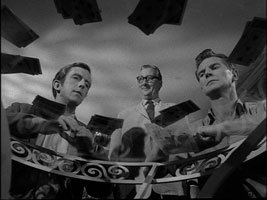 With a less obvious approach, two other episodes investigate humanity's flaws in "Third from the Sun" and "I Shot an Arrow into the Air". As these episodes have relatively reversed themes, it's a shame that they aired back-to-back in the original broadcasts as it diminishes their effectiveness. Still, they are good stories worthy of mention. "Third from the Sun" is one of my favorites from the series, in large part because of the fantastic direction by Richard L. Bare, who evokes great paranoia with creative use of the camera and lighting. It is a simple tale about a scientist and his family who are trying to flee the planet out of fear for impending nuclear war, and yet it is very effective in its message. "I Shot an Arrow into the Air" is less effective, but this tale of three astronauts marooned after a failed spaceflight still reminds us of what we are capable of when faced with extreme and unfamiliar circumstances.
With a less obvious approach, two other episodes investigate humanity's flaws in "Third from the Sun" and "I Shot an Arrow into the Air". As these episodes have relatively reversed themes, it's a shame that they aired back-to-back in the original broadcasts as it diminishes their effectiveness. Still, they are good stories worthy of mention. "Third from the Sun" is one of my favorites from the series, in large part because of the fantastic direction by Richard L. Bare, who evokes great paranoia with creative use of the camera and lighting. It is a simple tale about a scientist and his family who are trying to flee the planet out of fear for impending nuclear war, and yet it is very effective in its message. "I Shot an Arrow into the Air" is less effective, but this tale of three astronauts marooned after a failed spaceflight still reminds us of what we are capable of when faced with extreme and unfamiliar circumstances.
Perhaps the most used device in these first season episodes is the afterlife, and no fewer than seven episodes offer a glimpse into this curious state. "One for the Angels" stars Ed Wynn as a man who tries to avoid his appointment with Death. "Judgment Night" and "A Nice Place to Visit" provide different perspectives on what "the other place" might be like, and "Elegy" is a creative tale about eternal peace. In probably the best dramatic performance of the season, "A Passage For Trumpet" stars Jack Klugman as a trumpet player who has lost his will to live. Klugman's character, however, is certainly no George Bailey, and this episode takes a different approach to a similar theme from the popular Capra film. The result is a success.
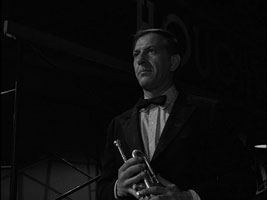 Most of the themes in these episodes are universal, and much of what makes this series so successful is Serling's fundamental understanding of basic human nature. Gene Roddenberry, another television writer with a keen understanding of the human condition, once said, "No one could know Serling, or view or read his work, without recognizing his deep affection for humanity ... and his determination to enlarge our horizons by giving us a better understanding of ourselves." While it's often known for twist endings and ironic resolutions, the heart and soul of The Twilight Zone is its characters and their underlying humanity. Remove the small element of fantasy, and their troubles are completely identifiable. There isn't a man alive who hasn't wondered what it would be like to live forever or make wishes come true with the wave of a hand or have all the time in the world to spend on a favorite hobby. The Twilight Zone poses those "what if" scenarios and shows us that the results may not be what we had imagined. All of us have felt pressure and loneliness and fear, and Serling taps into these emotions with ordinary characters who face ordinary issues, albeit under some extraordinary circumstances.
Most of the themes in these episodes are universal, and much of what makes this series so successful is Serling's fundamental understanding of basic human nature. Gene Roddenberry, another television writer with a keen understanding of the human condition, once said, "No one could know Serling, or view or read his work, without recognizing his deep affection for humanity ... and his determination to enlarge our horizons by giving us a better understanding of ourselves." While it's often known for twist endings and ironic resolutions, the heart and soul of The Twilight Zone is its characters and their underlying humanity. Remove the small element of fantasy, and their troubles are completely identifiable. There isn't a man alive who hasn't wondered what it would be like to live forever or make wishes come true with the wave of a hand or have all the time in the world to spend on a favorite hobby. The Twilight Zone poses those "what if" scenarios and shows us that the results may not be what we had imagined. All of us have felt pressure and loneliness and fear, and Serling taps into these emotions with ordinary characters who face ordinary issues, albeit under some extraordinary circumstances.
At its best, The Twilight Zone does this with clever writing and strong performances. However, putting together 36 episodes in under a year, it's no surprise that the show is not always "at its best". Of the series, Rod Serling once said, "we had some real turkeys, some fair ones, and some shows I'm really proud to have been a part of." This is a fair assessment, and although the good far outweighs the bad, there are some real stinkers in this first season. Charles Beaumont's first episode for the series is "Perchance to Dream", and while the main story of a man who is afraid to fall asleep is really quite fascinating, it loses focus and tries too hard to be nightmarishly macabre. "The Fever" is another episode that doesn't really work and just comes across as silly. Franklin Gibbs (Everett Sloane) is a conservative man who thinks gambling is evil, but when his wife wins a trip to Las Vegas, he is haunted by a slot machine that is in fact quite evil. While Sloane's performance as a tormented man slowly losing his grip on sanity is very good, the episode works as neither a morality play on the dangers of gambling or a horror story about an evil slot machine. The second-to-last episode of the season, which was intended to air much earlier but had to be re-shot when the star (Paul Douglas) passed away, is apparently intended to be a comedy of sorts. Whether the result of the situation surrounding the shooting or just a difficulty of Serling to write comedy as well as drama, the episode fails on most every level, save one hilarious remark from Jack Warden's character as he realizes this is his second starring role where he's forced to interact with a robot.
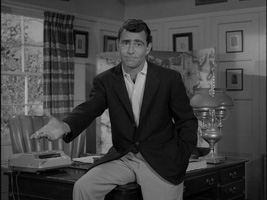 The final episode of the season is "A World of His Own", and it is also a comedy, this time written by Richard Matheson. Starring Keenan Wynn as a playwright with the power to literally turn his characters into flesh and blood, it is a humorous finale to an otherwise heavy season, and it succeeds in its task. Matheson had originally intended the story to be more of a nightmare, and it's easy to see how this would work, but it fits as a comedy and I was pleased with the final result. This episode closes the season with Serling's first on-screen appearance within a show, and it is a hilarious conclusion.
The final episode of the season is "A World of His Own", and it is also a comedy, this time written by Richard Matheson. Starring Keenan Wynn as a playwright with the power to literally turn his characters into flesh and blood, it is a humorous finale to an otherwise heavy season, and it succeeds in its task. Matheson had originally intended the story to be more of a nightmare, and it's easy to see how this would work, but it fits as a comedy and I was pleased with the final result. This episode closes the season with Serling's first on-screen appearance within a show, and it is a hilarious conclusion.
These first 36 episodes of The Twilight Zone show the series in its formative stages, and while not every episode is a masterpiece, most of them are pretty good and contain at least one element worthy of repeat viewing. It should be noted that the writing for the show is just one of the aspects that contributes to its quality. Along with some skillful direction and clever photography, this series boasts some incredibly talented actors. As Rod Taylor notes in his audio commentary for "And When the Sky Was Opened" (and various others echo similar comments), everyone in Hollywood at the time wanted to work on a Rod Serling script. There were so many formula stories floating around with uninspired characters that actors went out of their way to work on a Serling project, because they knew that with one of his scripts they would really get to exercise their talents. What stands out as strong as the writing in these episodes is the performances, and for a 30-minute anthology series that is shot in three days, it is hard not to be impressed with much of the acting.
As Serling says, there are some turkeys in this season, and it is certainly far from perfect. Some of the episodes have been so ingrained into pop culture over the years that it is nearly impossible for them to maintain their effectiveness. However, on the whole, it is a groundbreaking series featuring a high level of quality and diverse storytelling, and nearly 50 years later, no other show has been able to capture the style and substance of the original (and many have tried). There is a lot to enjoy with this season, and having seen all of these episodes so many times over the years, I was surprised how I could still be entranced by the better ones. It's hard to imagine there is anyone walking the face of the Earth who hasn't already seen these shows, but if you're among them, I really suggest you take a look at this wonderful piece of television history.
PRESENTATION:
This "definitive edition" of the first season of The Twilight Zone genuinely lives up to its label. Viewing this set, it's hard to escape the feeling that every single piece of material that exists is included here (or will be included in upcoming seasons). This hopefully final release is spread across six discs. The first five contain the 36 episodes in their entirety, and the sixth is reserved for some additional special features. Each disc fits into a very thin plastic casing with detailed episodic information on the back, and these six discs slide into the side of a rectangular box about two inches thick. This box is then housed within a slightly larger box that leaves an extra inch of horizontal space for the 466-page book included within the set (The Twilight Zone Companion by Marc Scott Zicree). My only complaint with this packaging is the individual minicases. Because of their design, the cases bow in the middle a bit (which isn't really a problem when housed in the larger box), and there is no clasping mechanism to secure the discs inside. Instead there is a round knob of plasic upon which the discs should fit snugly. While this is the case with most of the discs, it is a flimsy design, and it's easy to see how repeated use will make it less effective over time.
To my great delight, and hopefully yours as well, each episode is presented on these discs as completely as possible. Out of 30 possible minutes, there are nearly 26 minutes from the original broadcast of each and every episode. Not only has Image restored the proper opening sequences and organized the episodes in proper broadcast order, but they have also included Rod Serling's previews for the following week's episode as well as CBS's promotional material for upcoming programming like The Danny Thomas Show and Wanted Dead or Alive. Even the short bumpers between acts have been maintained, and the result is a virtual time capsule to the 1959-1960 television season. Even more material could have been included, but likely proceeding from the assumption that viewers don't want to see a bunch of ads for Kimberly-Clark and Sanka, they moved those billboards to the bonus feature disc. After watching a few recent TV shows that have been sliced and diced for the DVD release, it is refreshing to see something so old be presented with such attention to detail.
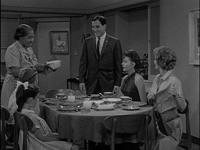 | 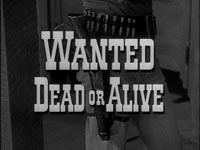 | 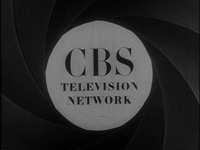 |
Like the original broadcasts, this first season release is in a 4:3 aspect ratio with a mono audio track, and I really don't believe it's ever looked or sounded any better. While I reviewed this set, I was quite surprised at how good it looked blown up on my 65" screen, and comparing it to the previous Image releases, especially the "Treasures" DVDs, it is a drastic improvement. The audio is significantly more detailed and clear, and the video shows improvement across the board. Not only do these new transfers have better definition and detail, but there is a remarkable reduction of defects, especially considering the age. The screenshots don't do it justice, since you cannot see all the specks and scratches flying around with a static frame, but the improvement is significant (check out the wavy lines on that suit!). It is certainly not perfect, but there is only so much one can expect from a show over 45 years old.
| Old | New |
|---|---|
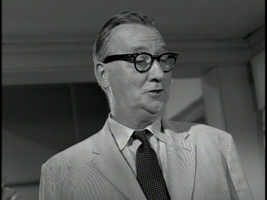 | 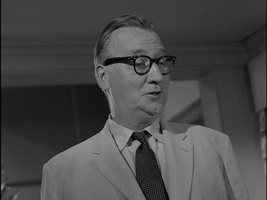 |
| Old | New |
|---|---|
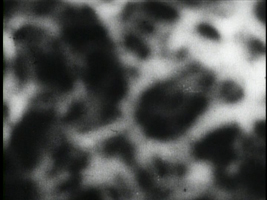 |  |
| Old | New |
|---|---|
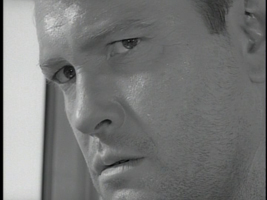 | 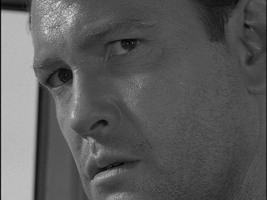 |
The menus are organized in a very simple format that is far less annoying than the original Image releases. The montage of the series' classic moments runs once in the background of the main menu, and everything is easily selectable from the start. Each episode's menu has a scene selection screen that is well organized as well as a link to special features. Probably the only thing missing is a "Play All" feature, but that is a minor oversight in an otherwise great layout.
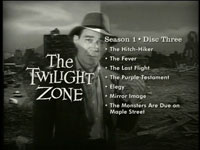 | 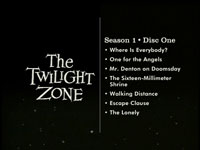 | 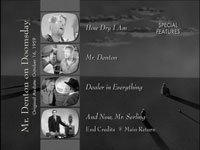 |
Considering the age of the material, this presentation is as complete and as high a quality as one could possibly ask for.
WHISTLES & BELLS:
THE TWILIGHT ZONE COMPANION
It wouldn't be a "definitive edition" unless there were a whole host of bonus features, and this set certainly does not disappoint. It seems that everything in existence on the subject of The Twilight Zone has been included here, starting with Marc Scott Zicree's The Twilight Zone Companion. First released in 1982 and updated in 1989, this 466-page episode guide is the definitive resource on the show. Zicree isn't the world's greatest writer, but he is certainly capable enough, and the information provided in this book is both detailed and interesting. It begins with a short biography of Rod Serling and then proceeds to tell the story of how the series ultimately made it to air. The majority of the book is then devoted to an "episode guide", but it is presented in a very effective manner. Instead of simply listing the episodes in order of airdate and summarizing their content, Zicree organizes the episodes by production order. This is a perfect way to approach the subject as it allows him to discuss the evolution of the show's production along with the analysis of the episodes. When the timeline reaches the first Charles Beaumont episode, for example, Zicree pauses to provide some biographical information on the writer before discussing his episode. When the show is on production hiatus waiting for the go-ahead from the network, he discusses what went on during that period of time. This approach works perfectly, and it allows the reader to learn a wealth of information without getting bogged down in a strictly dry organization of the content.
For each episode, The Twilight Zone Companion provides technical information, such as the airdate and credits, as well as at least one photograph from the shooting. It then gives Serling's opening narration, followed by a brief synopsis of the episode, and concludes with the closing narration. Depending on the quality of the episode in question and the information available to him, Zicree then spends a page or two going into detail from the production of the episode and how various people felt about it. Unlike most episode guides, the way the book is structured, if you skipped the narrations and synopses, you could honestly read it cover to cover without getting bored and learn quite a bit about the show. Impressively, it works as both a reference guide and a chronological description of the series as it was produced, and it makes for an absolutely fantastic addition to this set.
Included on the DVDs themselves are all kinds of extra material: audio commentaries from stars and directors, recently produced radio dramas, excerpts from Rod Serling's lectures at the Sherwood Oaks College, excerpts from Zicree's interviews when researching his book, and isolated scores from various composers.
COMMENTARIES
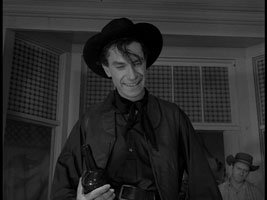 Five of the episodes features full-length audio commentaries from stars, which is an impressive accomplishment considering how old this material is. The first comes from Earl Holliman, who stars in "Where is Everybody?" It's actually quite interesting to hear his thoughts, both positive and negative. One thing that really stands out is his feelings on Serling's writing. He often comments that the dialogue written on the page was fantastic, and it sounded even better when Serling read it aloud; however, Holliman felt awkward reading the dialogue himself and doesn't think the scenes worked as well when ultimately put on the screen. He also notes that the director gave him a lot of freedom to find the character himself, but surprisingly, he secretly wanted more input since at the time he was unsure of himself as an actor.
Five of the episodes features full-length audio commentaries from stars, which is an impressive accomplishment considering how old this material is. The first comes from Earl Holliman, who stars in "Where is Everybody?" It's actually quite interesting to hear his thoughts, both positive and negative. One thing that really stands out is his feelings on Serling's writing. He often comments that the dialogue written on the page was fantastic, and it sounded even better when Serling read it aloud; however, Holliman felt awkward reading the dialogue himself and doesn't think the scenes worked as well when ultimately put on the screen. He also notes that the director gave him a lot of freedom to find the character himself, but surprisingly, he secretly wanted more input since at the time he was unsure of himself as an actor.
The next commentary comes from Martin Landau for the episode "Mr. Denton on Doomsday". While he says almost nothing related to the actual episode, this one is by far my favorite, and I feel like I could listen to Landau talk about his work in television and film against the backdrop of all 36 episodes. He speaks at length about the black and white nature of the series and how it creates an ambiance and a contrast between stark reality and fantasy. Comparing it with his work on Ed Wood, he mentions how they tried to create a similar look at feel to these episodes. It is a wonderful commentary that talks about all areas of film and television production, and Landau is a great storyteller with some fascinating perspective.
Rod Taylor, who stars in "And When the Sky Was Opened", provides commentary for the episode, and he discusses aspects of the tight shooting schedule and how he had only been in the United States for five years (from Australia) when he got the job. There are some long gaps in this commentary, which is a bit annoying, but he does apologize for doing a terrible job because he's so interested in the plot. It's not the best commentary on the set, but it is worth a listen.
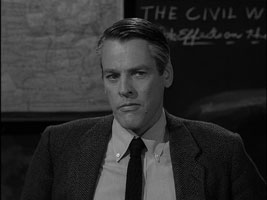 For the episode "Mirror Image", Martin Milner provides insight on the show, and like Taylor, he makes special mention of how so many people wanted to work with Rod not only because he was a great writer, but also because he was a genuinely nice person. Much of the commentary is about his own career, and he even goes so far as to pimp his own website http://www.hookup1090.com -- "The #1 Fishing Radio Talk Show in the West!" He talks about how television is different now and how it's near impossible for a character actor to make a career, especially with all the "reality" shows on the air. When he spoke it was pretty entertaining, but there are significant gaps in this commentary as well, and he's almost completely silent for the last 10 minutes of the episode.
For the episode "Mirror Image", Martin Milner provides insight on the show, and like Taylor, he makes special mention of how so many people wanted to work with Rod not only because he was a great writer, but also because he was a genuinely nice person. Much of the commentary is about his own career, and he even goes so far as to pimp his own website http://www.hookup1090.com -- "The #1 Fishing Radio Talk Show in the West!" He talks about how television is different now and how it's near impossible for a character actor to make a career, especially with all the "reality" shows on the air. When he spoke it was pretty entertaining, but there are significant gaps in this commentary as well, and he's almost completely silent for the last 10 minutes of the episode.
The final commentary on the main discs is from Kevin McCarthy, the star of "Long Live Walter Jameson". He's fun to listen to, if for no other reason than his incredible hyperbole. One of the first things he says is that the episode in question is so amazing that it will still be incredibly compelling a thousand years from now. He's overreaching a bit, but his enthusiasm is welcomed nonetheless. He also states that Invasion of the Body Snatchers is considered by most to be the greatest science fiction film ever made. Again, his enthusiasm is welcomed. Like the others, there are some sizeable gaps in the commentary, but he is pretty knowledgeable about the material, especially after all these years. There's a pretty big gap midway through the episode, and just when you think he's used up all his information, he suddenly opens up and speaks at length about his troubled childhood and what led him to become an actor. Wrapping up with some fascinating information on the way they did his makeup for the final scenes, it proves to be an interesting and entertaining commentary and one worthy of attention.
On the whole, these aren't the greatest commentaries you'll find on DVD, but considering how long ago it was that these shows were made, and how removed from the whole experience these individuals must be, it's an admirable effort and more than worth the time to examine.
RADIO DRAMAS
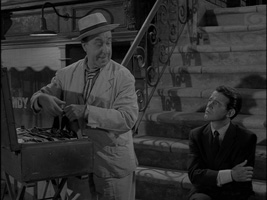 A feature I did not expect to see is these five radio dramas from a syndicated radio series produced in the past few years by Falcon Picture Group and available at http://www.twilightzoneradio.com. When playing these audio pieces, the DVD presents a single screenshot from the episode while the audio plays in the background. Each one runs between 35-40 minutes and has been adapted and expanded for the new format. Stacy Keach acts as narrator and delivers Serling's original words with skill.
A feature I did not expect to see is these five radio dramas from a syndicated radio series produced in the past few years by Falcon Picture Group and available at http://www.twilightzoneradio.com. When playing these audio pieces, the DVD presents a single screenshot from the episode while the audio plays in the background. Each one runs between 35-40 minutes and has been adapted and expanded for the new format. Stacy Keach acts as narrator and delivers Serling's original words with skill.
"One for the Angels" stars Ed Begley, Jr., a curious choice, and he isn't particularly effective in the role. However, the extra time allows for some additional character development that works pretty well. The original episode isn't a great one to begin with, and this radio piece falls short as well since so much rests on the ability for the lead to deliver a perfect pitch at the end, and Begley, Jr. isn't really up to the task.
The next radio drama on the set is for "I Shot an Arrow into the Air", and it is woefully overwritten with painfully unrealistic dialogue. The televised episode is a great analysis of man losing his grip on rational thought and panicking in a difficult and scary situation. This radio drama, however, comes across as laughably silly, injecting witless banter in all the wrong places. The character of the Colonel is especially wooden, and the dialogue is cringe inducing.
"The Monsters are Due on Maple Street" is one of the best episodes of The Twilight Zone in the first place, so I was pleased to hear that the radio drama captured the essence of the episode for the most part. The lead actor's voice is a tad childlike, and some of the dialogue comes across hokey, but it's easily the best of the radio dramas included on this set. The performances are strong, and the intensity of the situation translates surprisingly well to audio. They've also added some additional exposition about a science experiment with monkeys to further drive home the plot. While it isn't a necessary addition, it does assist, and overall it's a quite successful effort.
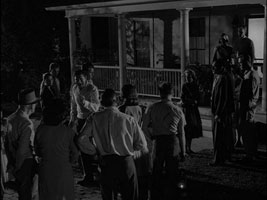 Surprisingly, I found that "The Big Tall Wish" actually works better as a radio drama. Ivan Dixon is very good as Bolie on the screen, and he gives a solid visual performance that cannot be captured by Blair Underwood's radio voice, but too much of the television direction fails. The worst part of the original episode is the somewhat laughable attempt to present a boxing match with a small budget. Even accepting the constraints they were under, it still looks terrible. It would normally seem odd to suggest, but this boxing match at the climax actually plays better on radio than it did on screen. In this edition, Blair Underwood is fantastic and gives a wonderfully nuanced performance. Of all the radio dramas in this set, this one experiences the greatest rewrite from the original, and the changes are effective.
Surprisingly, I found that "The Big Tall Wish" actually works better as a radio drama. Ivan Dixon is very good as Bolie on the screen, and he gives a solid visual performance that cannot be captured by Blair Underwood's radio voice, but too much of the television direction fails. The worst part of the original episode is the somewhat laughable attempt to present a boxing match with a small budget. Even accepting the constraints they were under, it still looks terrible. It would normally seem odd to suggest, but this boxing match at the climax actually plays better on radio than it did on screen. In this edition, Blair Underwood is fantastic and gives a wonderfully nuanced performance. Of all the radio dramas in this set, this one experiences the greatest rewrite from the original, and the changes are effective.
The final radio drama on the main discs comes with "The After Hours", a very visual episode that seems an odd choice for this type of presentation. Still, Kim Fields is very good in the leading role, and the updated script creates some good character development that really assists the story. Also pleasing is that the rewrite finds a much more realistic way for Marsha to end up on the 9th floor the second time. Unfortunately, this episode still needs the visual payoff at the end, and for all its strengths, it doesn't work as well in this radio form.
LECTURES
Another interesting feature is excerpts from Rod Serling's lectures at Sherwood Oaks College in 1975. Although not nearly as long as the episodes themselves, these lectures are presented on the discs like audio commentaries, and when completed the original audio kicks in. Personally, I would much rather just have the lectures themselves in their entirety, but I can understand why the structured them this way. Also, it's difficult to hear some of the questions from the audience, but since this isn't a professional recording by any means, it's quite forgivable.
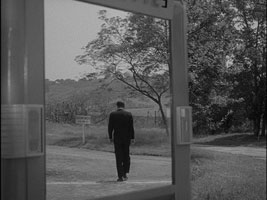 The excerpts appear on three different episodes, the first of which is "Walking Distance", and Serling's comments are fascinating. He is humorous and engrossing, and it's wonderful to hear his critical analysis of his own work. Looking back on this specific episode, he points out numerous flaws in the execution, and everything he says is a correct assessment of the quality. It's rare to hear someone so accurately critique his own writing, and it's both entertaining and informative to listen to.
The excerpts appear on three different episodes, the first of which is "Walking Distance", and Serling's comments are fascinating. He is humorous and engrossing, and it's wonderful to hear his critical analysis of his own work. Looking back on this specific episode, he points out numerous flaws in the execution, and everything he says is a correct assessment of the quality. It's rare to hear someone so accurately critique his own writing, and it's both entertaining and informative to listen to.
The second excerpt appears with "And When the Sky Was Opened", and it's more of the same high quality analysis. He talks about suspension of disbelief and how a fantasy story will have no emotional payoff if it isn't believable on most every level other than that element of fantasy that is introduced. He also explains why he changed the original story to involve a trip to outer space because it simply didn't work as a random occurrence. Again, his criticism is insightful, and it's a fantastic listen.
The final lecture accompanies "The Mighty Casey", and it is only slightly related to the episode itself, notably his experience with Paul Douglas's passing and how the studio refused to pay for a new star (Serling had to pay $27,000 of his own money to bring in Jack Warden to complete the episode). The rest of the time is spent discussing how difficult it is to maintain the shooting schedule they had, which is the reason episodes that weren't as good as others, like "The Mighty Casey", did not receive the rewrites necessary. He also takes a moment to analyze the styles of Jack Webb and John Frankenheimer. On the whole, it's another great listen, and I only wish there were more material available, since Serling is a wonderfully engrossing speaker.
INTERVIEWS
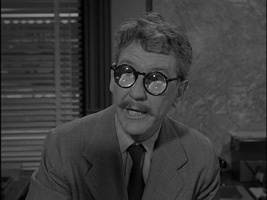 Probably the most disappointing of the features is excerpts from Marc Scott Zicree's interviews with various cast and crew. Like the lectures, they are played as audio commentaries even though they do not run the length of an entire episode. While it's understandable that Zicree never foresaw these tapes being included on DVDs 25 years after he made them, they're still somewhat painful to listen to, as he's a terrible interviewer, vocally acknowledging nearly every word from his subject's mouth with an "uh huh" or "hmmm!" Also, as a minor complaint, since these are the sources of the material included in the book, there's quite a bit of overlap in information. That being said, I cannot complain with the spirit of their inclusion on this set.
Probably the most disappointing of the features is excerpts from Marc Scott Zicree's interviews with various cast and crew. Like the lectures, they are played as audio commentaries even though they do not run the length of an entire episode. While it's understandable that Zicree never foresaw these tapes being included on DVDs 25 years after he made them, they're still somewhat painful to listen to, as he's a terrible interviewer, vocally acknowledging nearly every word from his subject's mouth with an "uh huh" or "hmmm!" Also, as a minor complaint, since these are the sources of the material included in the book, there's quite a bit of overlap in information. That being said, I cannot complain with the spirit of their inclusion on this set.
The first interview is with Burgess Meredith on "Time Enough at Last". It runs about 15 minutes and sounds as if they recorded it on the ocean, with large sweeping waves constantly heard in the background. Meredith is either completely disinterested with the whole process, or he's really annoyed (or both). Either way, there's not much information here. The next runs about 6 minutes and is with Douglas Heyes, director of "And When the Sky Was Opened" (among others) and is apparently recorded in a restaurant. There are some nuggets of information to be heard, but not much, and there's better material from Heyes on other excerpts.
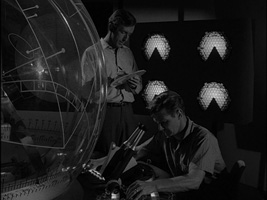 "Third from the Sun" features about 10 minutes with director Richard L. Bare, and it's actually quite good. He talks about the various things he did with lenses to get certain wide-angle effects, and they discuss the shooting and rehearsing schedule of the show as well as how they came up with some of the props. Of all the interview segments, this is probably the best. Buck Houghton, the show's producer, is heard for only about 5 minutes on "A Stop at Willoughby". It's a shame this excerpt is so short, because Houghton seems to remember the show the most clearly of anyone, and he appears genuinely interested in talking about it. He shares some thoughts on how much he enjoyed working on this episode, but that's about it.
"Third from the Sun" features about 10 minutes with director Richard L. Bare, and it's actually quite good. He talks about the various things he did with lenses to get certain wide-angle effects, and they discuss the shooting and rehearsing schedule of the show as well as how they came up with some of the props. Of all the interview segments, this is probably the best. Buck Houghton, the show's producer, is heard for only about 5 minutes on "A Stop at Willoughby". It's a shame this excerpt is so short, because Houghton seems to remember the show the most clearly of anyone, and he appears genuinely interested in talking about it. He shares some thoughts on how much he enjoyed working on this episode, but that's about it.
Heyes returns on "The Chaser", this time in a room with a loud ticking clock, and he talks for about 10 minutes on the way they created the library/potion shop scenes as well as the heart-shaped smoke ring from the final scene. He also has high praise for both Serling and Houghton, noting how they both encouraged everyone to do their absolute best work on the show. Heyes ultimately left the series when it was treated as an hour-long format, and he spends some time discussing that as well. We hear from Heyes for 8 more minutes on "After Hours", and he speaks about how it was essentially the same cost to hire an actor for "a week" (five days) as for "three days", so they just hired everyone for the full week and used the extra time for rehearsal. He provides some interesting information about how they structured the shooting schedule and how it benefited the performances of the actors, and it is worthy of a listen.
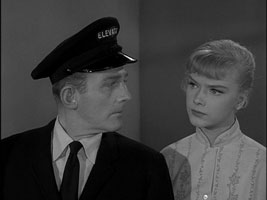 "After Hours" also contains an interview segment with the star Anne Francis that plays for about 10 minutes. She analyzes her character and talks about the process she underwent to become a mannequin for certain scenes. This is an odd interview, as it almost sounds like Zicree is nervous in her great presence, and she gives some strangely rambling answers to his poorly formed questions. The whole thing is pretty awkward. Finally, Richard Matheson is interviewed for 10 minutes on "A World of His Own", the season finale. He tries hard to sound very amiable about the way his scripts ended up on screen, but you can tell that there's some frustration and annoyance under his words. He was also annoyed that Phyllis Kirk strayed so heavily from his script. Those feelings aside, he provides some interesting input on the show's evolution.
"After Hours" also contains an interview segment with the star Anne Francis that plays for about 10 minutes. She analyzes her character and talks about the process she underwent to become a mannequin for certain scenes. This is an odd interview, as it almost sounds like Zicree is nervous in her great presence, and she gives some strangely rambling answers to his poorly formed questions. The whole thing is pretty awkward. Finally, Richard Matheson is interviewed for 10 minutes on "A World of His Own", the season finale. He tries hard to sound very amiable about the way his scripts ended up on screen, but you can tell that there's some frustration and annoyance under his words. He was also annoyed that Phyllis Kirk strayed so heavily from his script. Those feelings aside, he provides some interesting input on the show's evolution.
Overall, these are probably only worth listening to if you're a really big fan of the show. Almost all of the information from these interviews can be found in the book in a more concise and structured fashion.
ISOLATED SCORES
The final significant extra feature on the main discs is the isolated scores for 20 of the episodes! Pretty much every episode that wasn't scored with stock CBS music is presented as an alternate track on the discs, and for a score lover like myself, they are an excellent inclusion. Each score is decidedly unique, and it's great to hear the music against the scenes without any dialogue to see how much it affects the story. The two best inclusions here are Bernard Herrmann's score for the pilot episode "Where is Everybody?" and Jerry Goldsmith's wonderful work on "The Big Tall Wish." I also enjoyed Lyn Murray's music on "A Passage for Trumpet", but some of the solos aren't included.
OTHER MATERIAL
There are two other extras included on the main discs. The first is a very short clip from The Drew Carey Show that is a parody of "Time Enough at Last", except it features Carey's adult magazine collection instead. It's funny enough but certainly nothing spectacular. The other extra is included with "The Mighty Casey" and shows five photos with Paul Douglas who was originally cast and filmed before passing away.
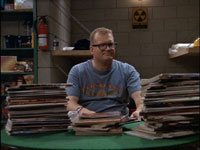
DISC SIX
You mean there is more? Absolutely! The entire sixth disc is devoted exclusively to extras.
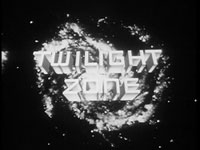 The most interesting piece on this disc is the original version of the pilot episode with Westbrook Van Voorhis as the original narrator and the incredibly cheesy opening title sequence that was thankfully scratched from the final product. The episode opens with a 7 and a half-minute sales pitch from Serling. He runs down some of the episodes, including the original concept for "Mr. Denton on Doomsday". While poor quality, it's fun to see him try to sell the show and so obviously pander to the advertisers who have so much power over its fate. The episode itself has a bit more material worked into the story that had to be cut for time, and it's interesting to see some of the scenes run a bit longer.
The most interesting piece on this disc is the original version of the pilot episode with Westbrook Van Voorhis as the original narrator and the incredibly cheesy opening title sequence that was thankfully scratched from the final product. The episode opens with a 7 and a half-minute sales pitch from Serling. He runs down some of the episodes, including the original concept for "Mr. Denton on Doomsday". While poor quality, it's fun to see him try to sell the show and so obviously pander to the advertisers who have so much power over its fate. The episode itself has a bit more material worked into the story that had to be cut for time, and it's interesting to see some of the scenes run a bit longer.
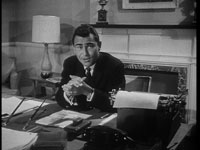 Along with the episode (and the pitch) is an audio commentary from William Self, the executive at CBS assigned with developing the original pilot. He is the man responsible for rejecting Serling's original submission of "The Happy Place", and this commentary is especially interesting since he disputes some of the information in Zicree's book. Zicree had written that Serling took the rejection in stride, but Self claims that Rod went straight to Dozier ("the boss") and requested Self be removed from the project entirely, something Dozier would not do. A few days later, according to Self, Serling showed up unannounced with a smile on his face and a script for "Where is Everybody?" in his hand. While he's a bit full of himself (no pun intended), this is one of the better commentaries on the set, and he provides some really good information about how the show was created. He also tells a great story about how he had to sell the show to William Paley at CBS and how the projectionist was so involved in the plot that he forgot to change the reels after a pivotal scene. Unlike some of the others, this is a complete audio commentary with no gaps, and it is very informative.
Along with the episode (and the pitch) is an audio commentary from William Self, the executive at CBS assigned with developing the original pilot. He is the man responsible for rejecting Serling's original submission of "The Happy Place", and this commentary is especially interesting since he disputes some of the information in Zicree's book. Zicree had written that Serling took the rejection in stride, but Self claims that Rod went straight to Dozier ("the boss") and requested Self be removed from the project entirely, something Dozier would not do. A few days later, according to Self, Serling showed up unannounced with a smile on his face and a script for "Where is Everybody?" in his hand. While he's a bit full of himself (no pun intended), this is one of the better commentaries on the set, and he provides some really good information about how the show was created. He also tells a great story about how he had to sell the show to William Paley at CBS and how the projectionist was so involved in the plot that he forgot to change the reels after a pivotal scene. Unlike some of the others, this is a complete audio commentary with no gaps, and it is very informative.
Also included here are more excerpts from the Serling lectures. He talks about how long it took to shoot various scenes and some content that was cut out even before the first pilot. The best part of this lecture is simply Serling recalling a hilarious story of when he was stuck on an airplane that was showing a terrible movie based on one of his scripts, and how everyone kept staring and laughing at him as the movie got worse and worse.
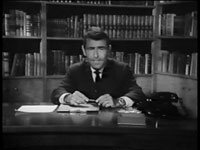
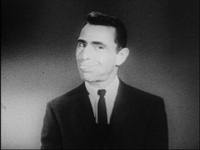
Finally with this episode, they include the alternate opening and closing narrations from the pilot (with the cheesy title sequence) with Serling's voice as the narrator. These were nice to hear, and I'm happy they were isolated, but it would have also been nice to have these branched into the episode if desired.
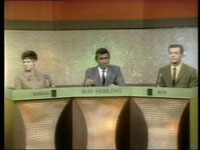 In addition to all the extra material from the original pilot is a 4 and half-minute sales pitch from Serling to the Netherlands. He sits behind a desk talking frankly to the camera about the show's content and why people should watch it. While some of the material is clearly prewritten for this express purpose, there is a real feeling that Serling is speaking from the heart about this show that he truly believes in, and it's nice to see.
In addition to all the extra material from the original pilot is a 4 and half-minute sales pitch from Serling to the Netherlands. He sits behind a desk talking frankly to the camera about the show's content and why people should watch it. While some of the material is clearly prewritten for this express purpose, there is a real feeling that Serling is speaking from the heart about this show that he truly believes in, and it's nice to see.
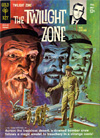 A really fun inclusion is an episode of Liar's Club (1976), hosted by Rod Serling. Similar to shows like Hollywood Squares, there are four celebrity panelists, and each has to tell the story of an oddly shaped object presented by the producers. Only one of them is telling the truth, and it's the task of the contestants to guess which one. The winner then takes home cash and prizes upwards of one hundred dollars! Guest starring theater/movie critic Rolfe Peterson, wonderful actress Betty White, voice actor Dick Gautier, and ABC News reporter Pia Lindstrom, this episode runs over 21 minutes and is really quite entertaining. It's a low quality tape, and I suspect some fan had it sitting in his basement somewhere, but it's still fun to watch, even if we never find out who wins the game.
A really fun inclusion is an episode of Liar's Club (1976), hosted by Rod Serling. Similar to shows like Hollywood Squares, there are four celebrity panelists, and each has to tell the story of an oddly shaped object presented by the producers. Only one of them is telling the truth, and it's the task of the contestants to guess which one. The winner then takes home cash and prizes upwards of one hundred dollars! Guest starring theater/movie critic Rolfe Peterson, wonderful actress Betty White, voice actor Dick Gautier, and ABC News reporter Pia Lindstrom, this episode runs over 21 minutes and is really quite entertaining. It's a low quality tape, and I suspect some fan had it sitting in his basement somewhere, but it's still fun to watch, even if we never find out who wins the game.
Another radio drama is included on this disc, this time for the episode "The Lonely", and it features Mike Starr. Surprisingly, this is another radio edition that works pretty well, both because Starr does a good job in the lead, and the expanded script does a better job establishing Alisha's character. It runs 40 minutes.
Finally -- yes, finally -- on this disc are a 12 second blooper of Serling flubbing a narration, clips from the Emmy Awards where Serling and Clemens received trophies for writing and cinematography, 24 stills from various episodes, 2 stills from Serling's appearances on game shows, a 32-page comic book in .pdf format (DVD-ROM only), and a few minutes of billboards from the show's primary sponsors: Kimberly-Clark and Sanka.
 |  |
CONCLUDING THOUGHTS:
Rod Serling understood that for science fiction to have any value it could not simply be spaceships and lasers; it must be a mirror to humanity and be grounded in a reality with which we can all identify. The Twilight Zone was a show that accomplished that goal and more. It held a mirror up to the audience and showed us at our best and our worst. It turned the tables on our prejudices and established that the things we desire most may in fact be quite undesirable. Often creepy, sometimes funny, and always interesting, The Twilight Zone stands strong nearly 50 years later as one of the greatest anthology series ever on television. This first season contains some of the best episodes of the series, and this "definitive" DVD release is packed with just about every piece of extra material in existence. I empathize with those of you who have already dropped significant amounts of cash on previous releases, as I have a menacing stack of Image DVDs on my shelf as well; but with audio and video transfers as good as could possibly be desired, the world's first 466-page "insert", and a wonderfully packaged set filled with bonus materials, I am pleased to recognize The Twilight Zone - Season 1 (The Definitive Edition) as part of the DVD Talk Collector Series.
Included in the set are the following episodes and extras:
Disc One
Disc Two
Disc Three |
Disc Four
Disc Five
Disc Six |
|
| Popular Reviews |
| Sponsored Links |
|
|
| Sponsored Links |
|
|
| Release List | Reviews | Shop | Newsletter | Forum | DVD Giveaways | Blu-Ray | Advertise |
|
Copyright 2024 DVDTalk.com All Rights Reserved. Legal Info, Privacy Policy, Terms of Use,
Manage Preferences,
Your Privacy Choices | |||||||













